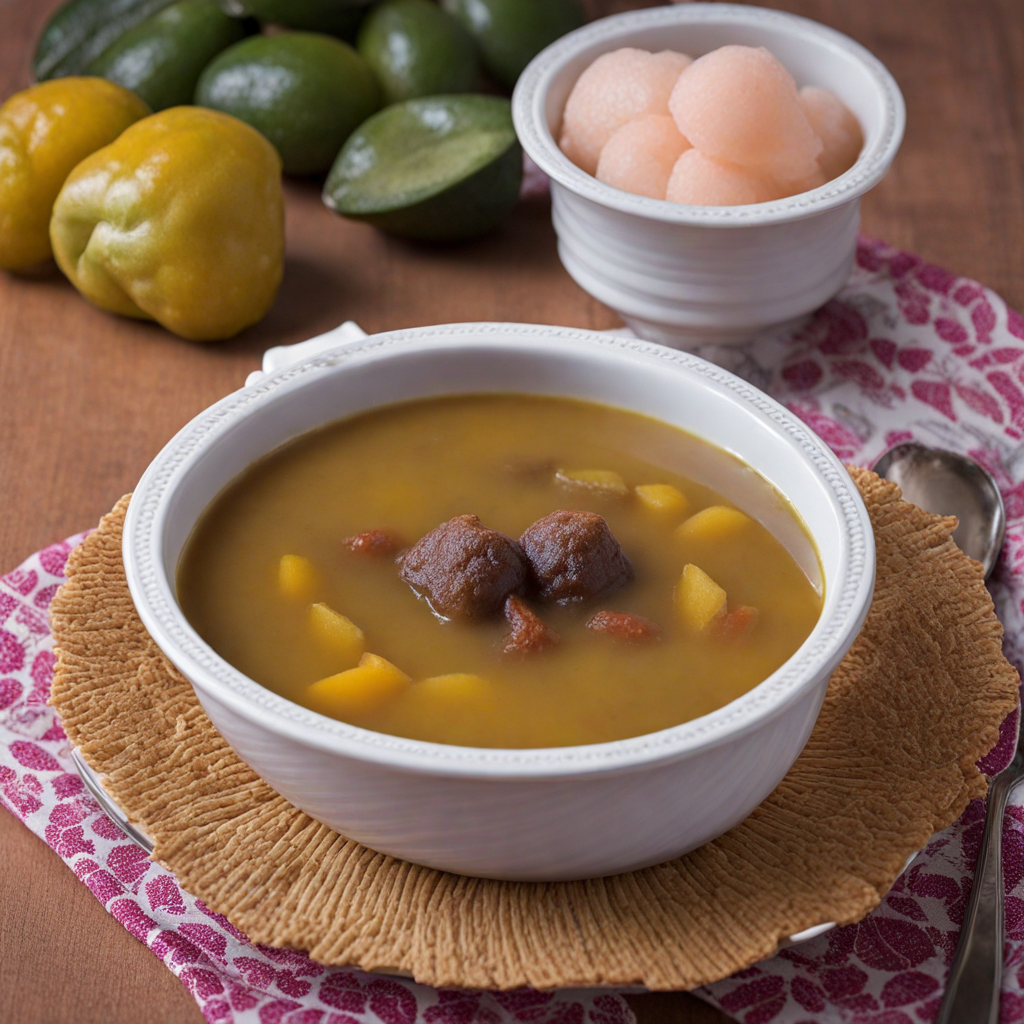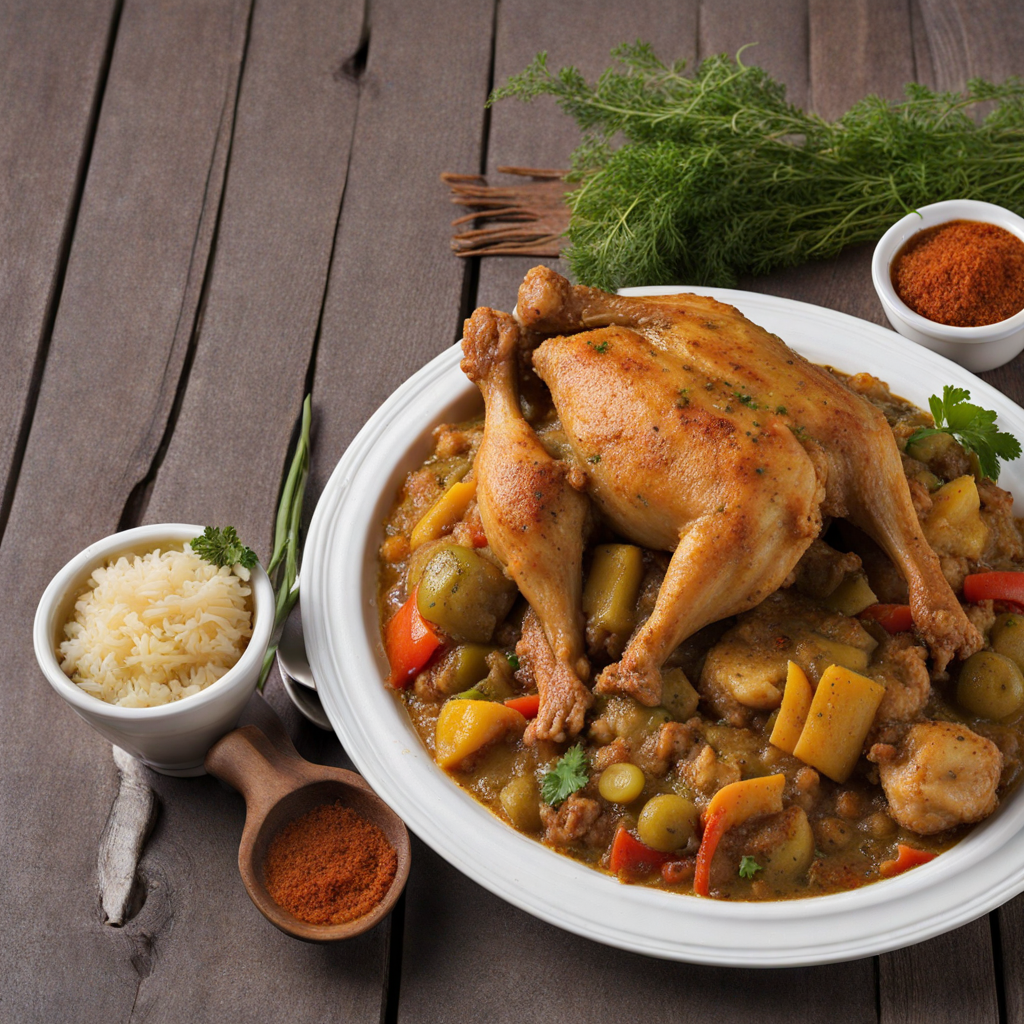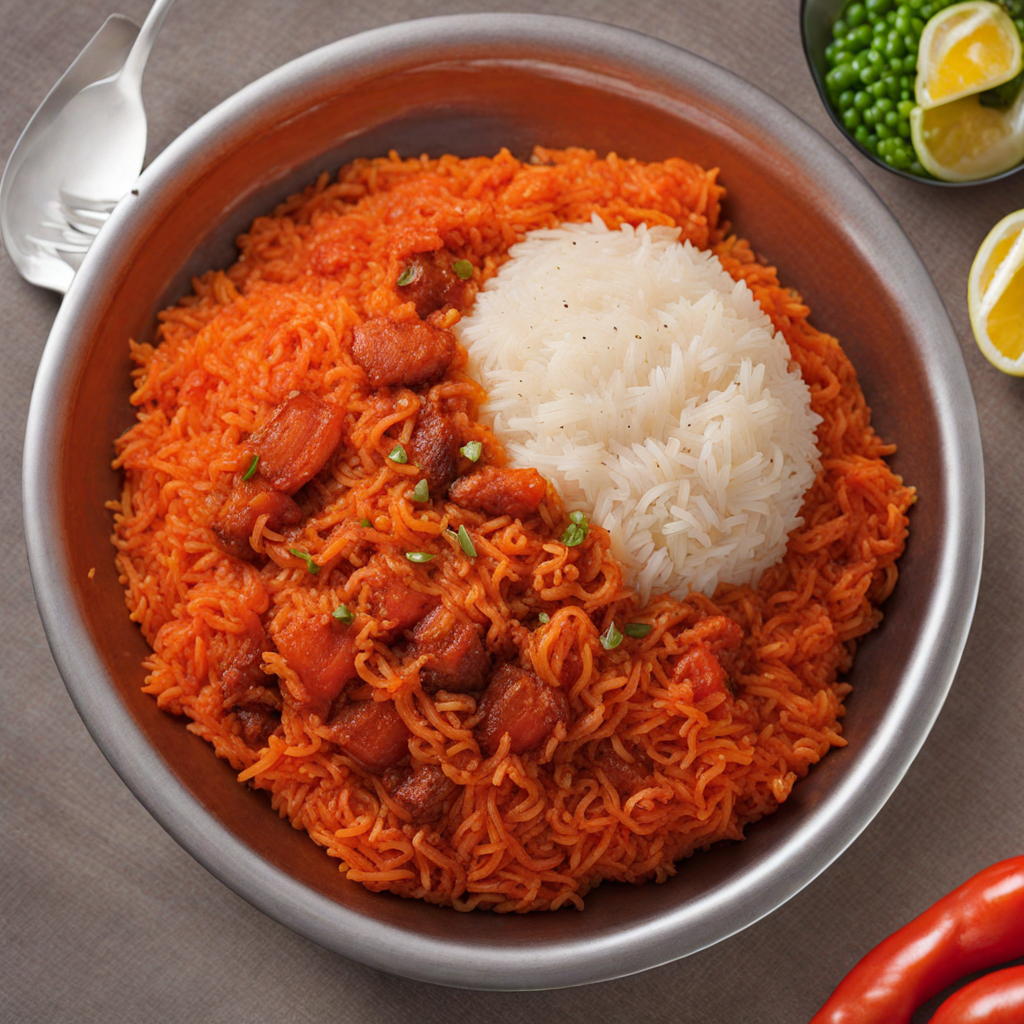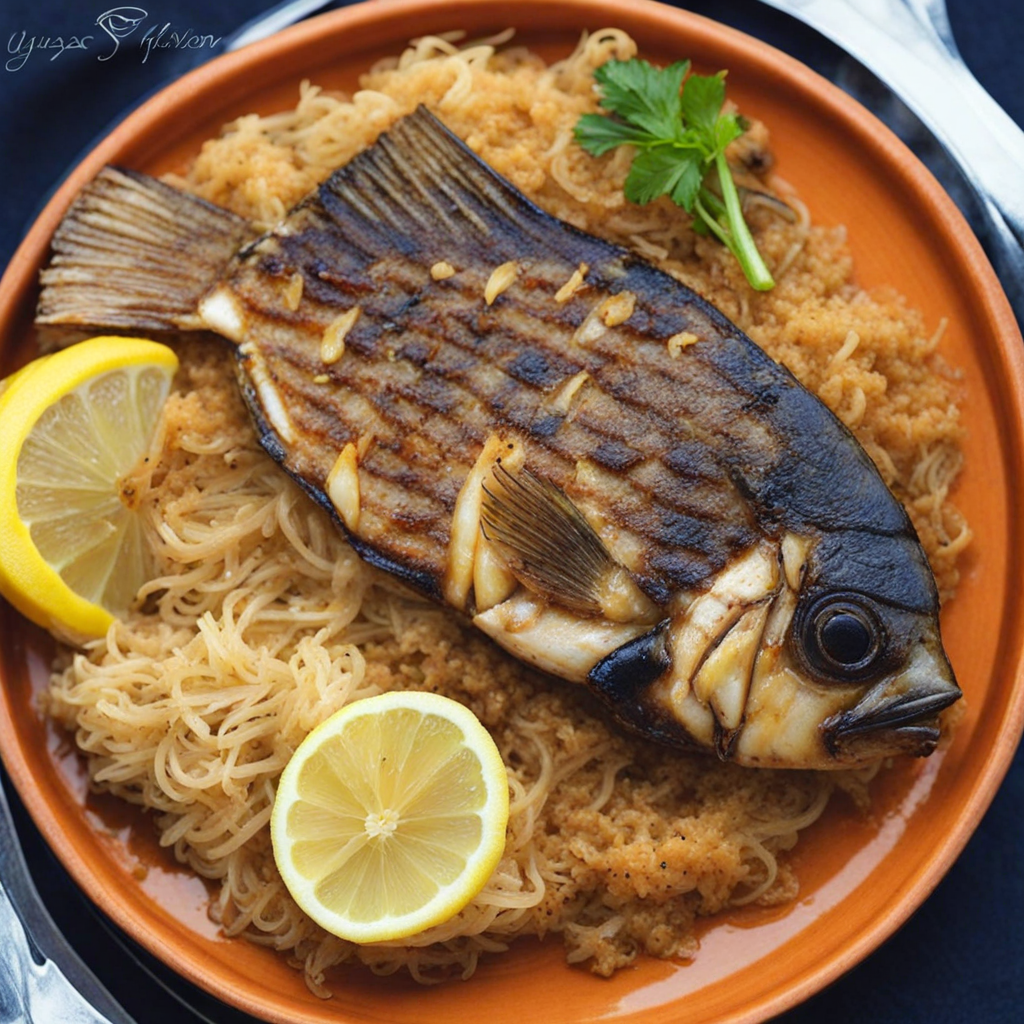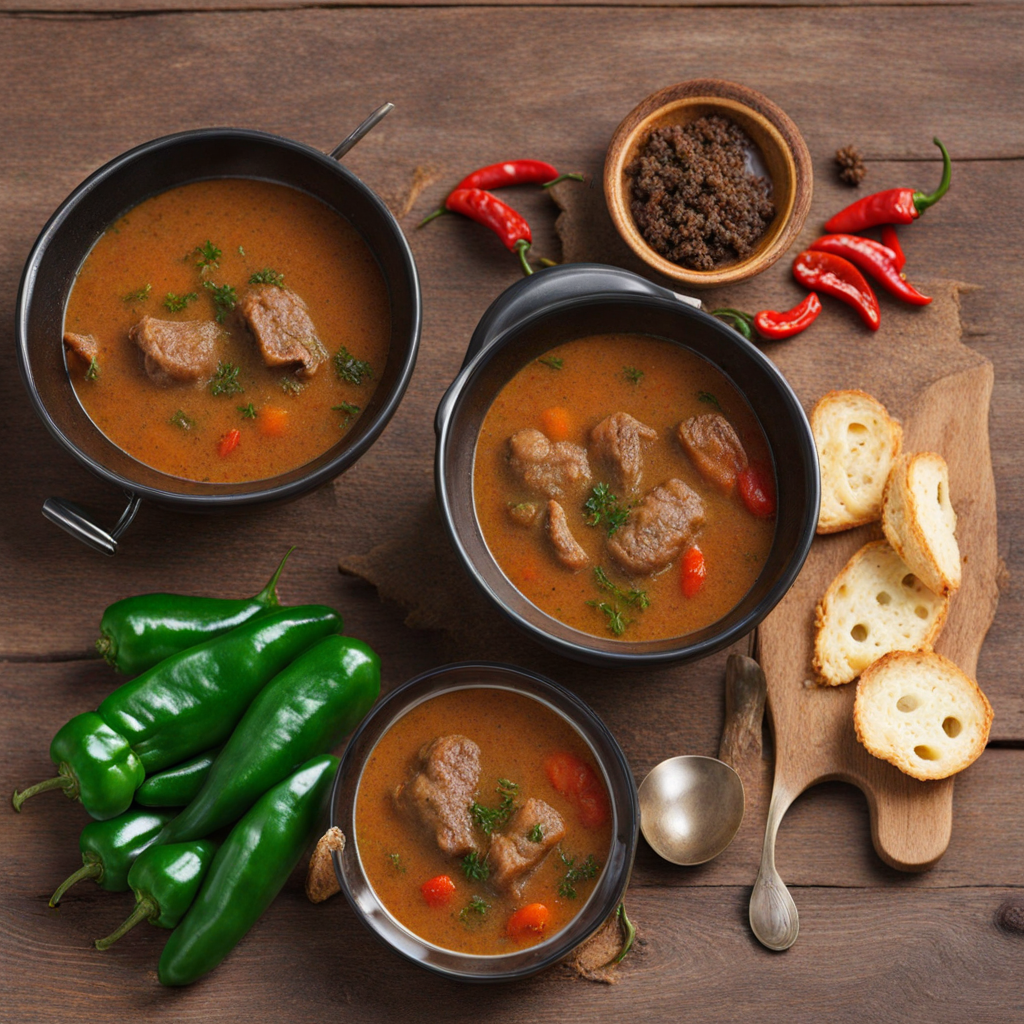Moukalou
Moukalou is a traditional Gabonese dish that showcases the rich, diverse flavors of Central African cuisine. It primarily features a base of cassava, which is a staple in many regions, transforming into a smooth and slightly sticky texture that serves as the canvas for this delightful dish. The cassava is often fermented, lending a tangy flavor that beautifully complements the other ingredients. Moukalou is typically served with a variety of accompaniments, including meat or fish, vegetables, and spicy sauces, creating a vibrant and hearty meal that reflects the essence of Gabon’s culinary heritage. The dish is often prepared with local ingredients that enhance its flavor profile. Common additions include ground nuts, which provide a creamy richness, and an array of spices that contribute to the dish’s aromatic quality. Depending on the region and personal preference, Moukalou can be paired with grilled meats, such as chicken or goat, or with fish that has been marinated and cooked to perfection. The combination of textures—from the smoothness of the cassava to the tender meat or fish—creates a satisfying and memorable dining experience. In Gabon, Moukalou is not just a meal; it is a communal dish that brings people together. It is often enjoyed during family gatherings, celebrations, and special occasions, embodying the spirit of sharing and connection. The experience of savoring Moukalou is as much about the food as it is about the company, making it a dish that resonates with warmth and tradition. With its unique flavors and cultural significance, Moukalou invites adventurous eaters to explore the tastes of Gabon and discover the heart of its culinary landscape.
How It Became This Dish
Moukalou: The Heart of Gabonese Culinary Tradition Origin and Ingredients Moukalou, a traditional dish from Gabon, is a rich and flavorful representation of the country's diverse culinary heritage. While the exact origins of Moukalou are somewhat nebulous, it is believed to have been developed by the Fang people, one of the largest ethnic groups in Gabon, known for their rich oral traditions and deep connection to the land. The dish is primarily made from cassava, a staple crop in the region, which is often fermented and combined with various locally sourced ingredients, such as fish, meat, vegetables, and spices. Cassava, originally domesticated in South America, made its way to Africa through the transatlantic slave trade and has since become a cornerstone of many West and Central African diets. In Gabon, cassava is not only a food source but also a cultural symbol, representing resilience and adaptation. It is often processed into different forms, with Moukalou being one of the most beloved preparations. The dish reflects the abundance of natural resources in Gabon, where the lush rainforests and rivers teem with life. Cultural Significance Moukalou is more than just a food; it is a dish steeped in cultural significance and communal identity. The preparation and consumption of Moukalou often occur during significant social gatherings, such as weddings, funerals, and harvest festivals. These occasions bring together family and friends, reinforcing bonds and celebrating shared heritage through food. In many Gabonese communities, the act of cooking and sharing Moukalou is imbued with rituals and traditions that honor ancestors and the natural world. The communal aspect of Moukalou is particularly important. Traditionally, families would gather to prepare the dish, each member contributing their skills and knowledge to the process. This collective effort is not only a way to bond but also a means of passing down culinary traditions from one generation to the next. The preparation of Moukalou can take several hours, involving the peeling, fermenting, and cooking of cassava, which encourages patience and cooperation among family members. Moukalou is also a symbol of hospitality in Gabonese culture. Serving this dish to guests is a gesture of warmth and welcome, embodying the spirit of sharing and generosity that is central to Gabonese life. It is common for families to prepare large quantities of Moukalou for gatherings, reflecting the abundance of resources in the region and the importance of community. Development Over Time As Gabon has evolved over the years, so too has Moukalou. The colonial period in the late 19th and early 20th centuries introduced new ingredients and cooking methods to Gabon, which influenced traditional dishes. While the core components of Moukalou have remained largely unchanged, the incorporation of new flavors and techniques has led to variations in how the dish is prepared and enjoyed. The introduction of European culinary practices prompted some Gabonese cooks to experiment with foreign ingredients, such as tomatoes, onions, and even spices from Asia. These adaptations have allowed Moukalou to maintain its relevance in a rapidly changing culinary landscape. Today, contemporary chefs in Gabon are exploring innovative ways to present Moukalou, blending traditional techniques with modern gastronomy. This fusion not only preserves the essence of the dish but also elevates it to new culinary heights. In recent years, there has been a growing interest in traditional Gabonese cuisine among both locals and tourists. This renewed appreciation for Moukalou and other indigenous dishes has sparked a culinary renaissance in Gabon, with chefs and home cooks alike experimenting with flavors and presentations while staying true to their roots. The establishment of restaurants specializing in Gabonese cuisine has also played a crucial role in promoting Moukalou, making it accessible to a broader audience and fostering a sense of national pride in Gabonese culinary heritage. Global Influence and Recognition As the world becomes increasingly interconnected, traditional dishes like Moukalou are gaining recognition beyond their borders. Gabonese diaspora communities have taken their culinary traditions with them to various parts of the world, introducing Moukalou to new audiences. Food festivals, cultural events, and social media have contributed to the global visibility of Moukalou, allowing people from different backgrounds to experience the flavors of Gabon. Moreover, the rise of interest in "ethnic" cuisines has led to a broader appreciation of African culinary traditions, with chefs and food enthusiasts eager to explore the rich tapestry of flavors found throughout the continent. Moukalou, with its unique combination of ingredients and its deep cultural significance, stands out as a representative of Gabonese cuisine. Conclusion: A Dish of Resilience and Unity Moukalou is more than just a meal; it embodies the spirit of Gabonese culture, resilience, and community. Its history reflects the interconnectedness of people, land, and tradition, making it a symbol of national identity. As Gabon continues to navigate the complexities of modernization and globalization, Moukalou remains a cherished dish that unites generations and honors the past. Through its flavors and communal preparation, Moukalou tells the story of Gabon—a story of adaptation, celebration, and the enduring power of food to bring people together. Whether enjoyed at a festive gathering or in a quiet family meal, Moukalou will continue to be a central part of Gabonese life, bridging the gap between tradition and modernity while preserving the rich heritage of its people.
You may like
Discover local flavors from Gabon



